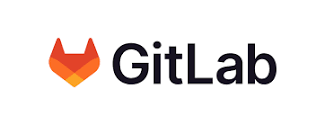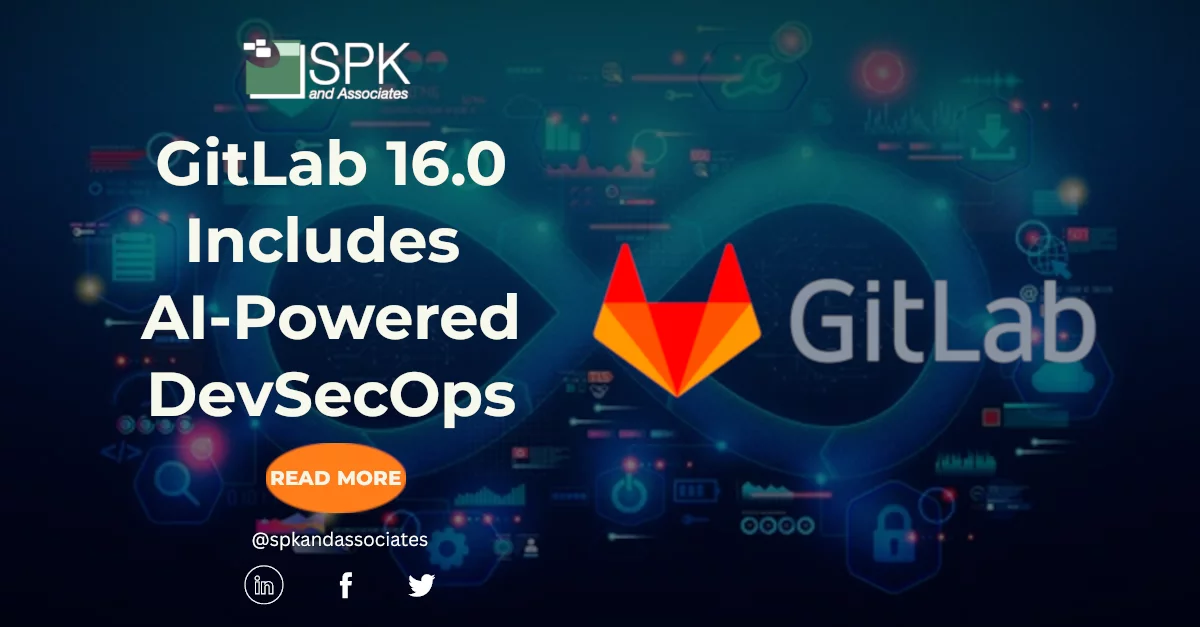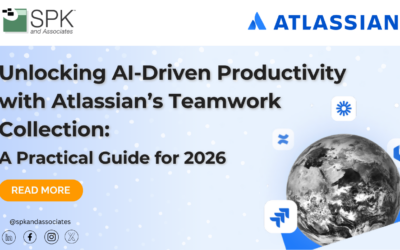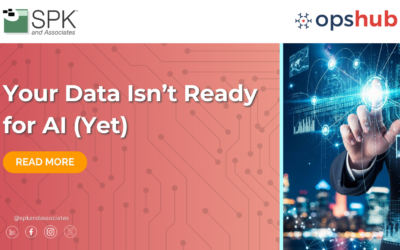Artificial Intelligence (AI) is a trend that is here to stay. And, it’s a core focus in the latest release of GitLab 16.0. That’s why you’ll find groundbreaking features that enrich the DevSecOps practices in your business. Additionally, you’ll unlock accelerated, secure, collaborative software delivery, transforming development and security. Ultimately, the AI-driven capabilities included in this release will revolutionize your software development lifecycle.
GitLab 16.0 AI For DevSecOps
So, let’s dive in. Here are the top four ways artificial intelligence in GitLab 16.0 will enhance your DevSecOps practices:
1. The AI Engine Is Powerful!
The AI engine is powerful in the GitLab 16.0 release. It analyzes code patterns, improving code quality and adherence to industry standards. And it can detect vulnerabilities in real-time. That means your developers can address them effectively and shut down any risks quickly.
2. Automated Security Remediation in GitLab 16.0
Next up, the AI-powered automated security remediation in GitLab 16.0 is revolutionary. Leveraging the AI engine’s insights, GitLab 16.0 can:
- Automatically generate fixes or,
- suggest actionable steps to mitigate security risks and coding errors.
You’ve probably already correctly assumed how this automation will reduce manual effort. Essentially, it’s going to optimize performance, fine-tune delivery pipelines, and enable developers to prioritize high-value activities. Ultimately, this will foster rapid iteration and innovation.

3. GitLab 16.0 Provides Seamless Collaboration and Enhanced Productivity
GitLab 16.0 introduces AI-powered chatbots and smart documentation assistants too. These are driven by natural language processing (NLP) algorithms. And, these tools facilitate seamless collaboration, instant support, and knowledge sharing amongst your team. Additionally, they will:
- Boost productivity.
- Enable informed decision-making
- Optimize your workflows.
So, you can look forward to reaping a reduced time-to-market and enhanced overall efficiency.
4. DevSecOps For The Future
We’ve written previously about the ways DevSecOps can improve your business practices. And, GitLab 16.0’s AI-powered platform further empowers your DevSecOps team for the future. By integrating advanced AI technology, GitLab 16.0 creates a unified environment that harmonizes collaboration, security, and efficiency. The adoption of AI-powered DevSecOps practices in GitLab 16.0 is the core of driving innovation, fortifying security measures, and achieving business agility. Welcome to a future-ready DevSecOps.
Additional Enhancements in GitLab 16.0
But wait – there’s more! Also on top of the exciting AI for DevSecOps feature releases in GitLab 16.0 there are other exciting enhancements too. These will further enhance your development experience using GitLab 16.0. So, we’ve listed just a few of the additional features below. Click here to see the full list of feature updates in GitLab 16.0.
1. Value Stream Dashboard
- GitLab Value Streams Dashboard enhances software delivery with metrics and trends.
- Benchmark value stream life cycles, analytics, DORA4, and vulnerability metrics.
- Track and compare metrics, identify downward trends, assess security exposure, and take targeted actions.
- Enjoy a comprehensive view in one application. Thus eliminating the need for third-party tools and providing visibility to all stakeholders.
2. GPU-enabled SaaS runners
- DevSecOps practices meet data sciences with powerful compute hardware in GitLab runner.
- GPU-enabled SaaS runners on Linux support compute-intensive workloads seamlessly.
3. Comment templates
- Help you avoid repetitive comments.
- Create saved responses in User settings > Comment templates.
- Use the ‘insert comment template’ icon to apply your response in comment boxes across GitLab, speeding up your workflow.
4. Remote Development Workspaces
- Define a stable development environment in code and create remote workspaces for efficient coding.
- Use GitLab Agent for Kubernetes to configure dependencies and store the environment in a .devfile.yaml file.
- Access the workspace through a Web IDE, work in containers, and easily start fresh workspaces when needed.
5. CI/CD Improvements
Now, the Job Failure Investigator provides detailed insights into failed jobs. Ultimately expediting issue identification and resolution in pipelines. And, Kubernetes Pod Autoscaling automatically scales CI/CD runners based on workload demands. This optimizes resource utilization and accelerates pipeline execution.
6. Project Management Enhancements
Issue Dependencies allow you to establish task dependencies, improving tracking and prioritization. Furthermore, Epic Roadmaps provide an intuitive visualization of epic progress and timelines. So, you’ll achieve better promotion coordination and informed decision-making.

7. Security and Compliance Updates
GitLab 16.0 introduces Secret Detection and scanning repositories. Basically, this will enable you to identify sensitive information and prevent accidental exposure. Also, the Regulatory Compliance Dashboard offers an overview of compliance status across projects. That means it will better aid you in meeting those regulatory requirements.
8. UX Improvements
In GitLab 16.0, you’ll enjoy the Enhanced Merge Request Approvals. These will provide greater flexibility and control, allowing custom rules for approvals. Lastly, the Improved Navigation experience ensures easy access to essential features and information. A welcome feature to optimize your overall platform usage.
Unlock Your DevSecOps Potential with GitLab 16.0

At SPK, we’re excited and welcome the GitLab 16.0 features for DevSecOps. They represent a significant leap forward in software development. Its AI-powered capabilities empower organizations to deliver secure, high-quality software with increased efficiency and collaboration. By embracing GitLab 16.0, you can leverage AI-driven security scanning, intelligent code analysis, and streamlined workflows to stay ahead in the market. And, with its commitment to continuous improvement and innovation, GitLab 16.0 paves the way for the future of DevSecOps. It’s going to revolutionize the development process and enable you to confidently achieve your software development goal
If you need support getting started with GitLab or improving your DevSecOps practices, contact our team here.
What Is GitLab?
GitLab is your comprehensive web-based DevOps lifecycle platform. It offers:
- Version Control: GitLab provides a powerful version control system using Git, allowing efficient code tracking, branching, merging, and code reviews.
- CI/CD Automation: Solid CI/CD pipeline automation enables automated builds, testing, and seamless deployments.
- Project Management: Built-in tools like issue tracking and Kanban boards help manage tasks and monitor progress effectively.
- Collaboration: Code discussion and review features enhance collaboration among team members.
- Security and Compliance: Built-in scanning, analysis, and vulnerability management capabilities prioritize security and compliance.
- Integration Options: GitLab seamlessly integrates with various DevOps tools for end-to-end automation.
- Scalability: Cloud-hosted and self-hosted versions accommodate diverse needs.
- Community and Enterprise Editions: GitLab offers a community edition for smaller teams and an enterprise edition with additional features and support for larger organizations.
Why DevSecOps Matters
By integrating development, security, and operations, DevSecOps ensures efficient, secure, and adaptable software development. Here’s why DevSecOps matters:
- Shift-Left Security: Embedding security measures early in the development lifecycle reduces breach risks and associated costs.
- Rapid and Continuous Delivery: Faster release cycles and seamless updates through continuous integration and delivery (CI/CD) integrate security checks and compliance measures.
- Collaboration and Shared Responsibility: Breaking down silos between teams enhances understanding of security risks and fosters collaboration.
- Proactive Risk Management: Continuous monitoring, rapid incident response, and reduced downtime facilitate effective risk management.
- Compliance and Regulatory Requirements: Automated checks ensure regulatory adherence, mitigating legal risks.
- Continuous Improvement and Learning: Analysis, post-mortems, and skill development refine practices and implement emerging security standards.







